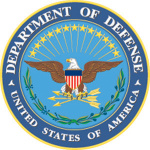- Industri: Government; Military
- Number of terms: 79318
- Number of blossaries: 0
- Company Profile:
The first offensive move of a war. (Generally associated with nuclear operations. )
Industry:Military
The first attainment of the capability to employ effectively a weapon, item of equipment, or system of approved specific characteristics that is manned or operated by an adequately trained, equipped, and supported military unit or force.
Industry:Military
The firing of shots or delivery of ordnance by personnel or weapons systems in the vicinity of a person, vessel, or aircraft as a signal to immediately cease activity. Warning shots are one measure to convince a potentially hostile force to withdraw or cease its threatening actions.
Industry:Military
The firing of ordnance by ships or aircraft at the steering or propulsion system of a vessel. The intent is to disable with minimum injury to personnel or damage to vessel.
Industry:Military
The final level of decontamination that provides the decontamination of equipment and personnel to a level that allows unrestricted transportation, maintenance, employment, and disposal.
Industry:Military
The field operating agency of the national detainee reporting center. It is the central tracing agency within the theater, responsible for maintaining information on all detainees and their personal property within a theater of operations or assigned area of operations.
Industry:Military
The field location at which the primary tactical-level on-scene incident command functions are performed. It may be collocated with the incident base or other incident facilities and is normally identified by a green rotating or flashing light.
Industry:Military
The federal official designated by the Secretary of Homeland Security to act as his/her representative locally to oversee, coordinate, and execute the Secretary’s incident management responsibilities under Homeland Security Presidential Directive 5 for incidents of national significance.
Industry:Military
The federal officer who is appointed to manage Federal resource support activities related to Stafford Act disasters and emergencies. The federal coordinating officer is responsible for coordinating the timely delivery of federal disaster assistance resources and programs to the affected state and local governments, individual victims, and the private sector.
Industry:Military
The federal agency that leads and coordinates the overall federal response to an emergency. Designation and responsibilities of a lead federal agency vary according to the type of emergency and the agency’s statutory authority.
Industry:Military
